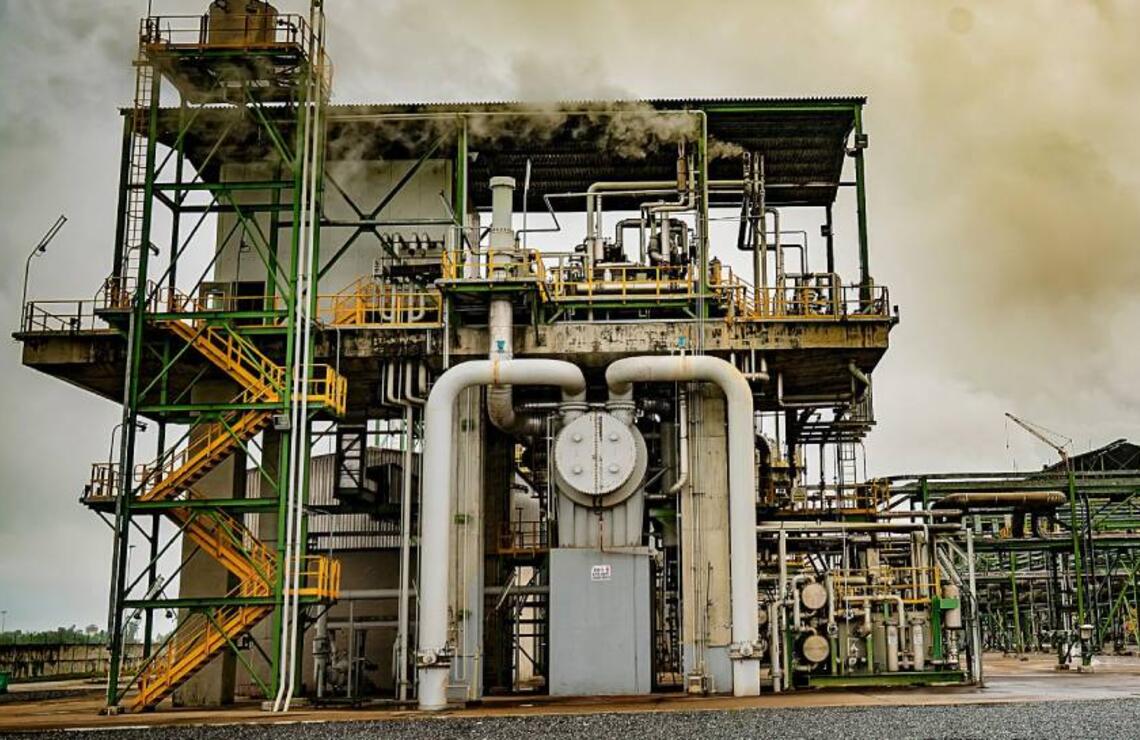
Lekki, supersizing the dream
The investment is massive, but could yield up to 20 billion dollars a year. The Lekki powerhouse project is generating a lot of interest, with four new refinery projects in the pipeline.
At last, it’s here! Eleven years in the making, and a doubling in construction costs from $9 billion to $20 billion, the world's largest single train refinery using only one crude distillation unit (CDU) is now up and running. Aliko Dangote's wildest, boldest and riskiest project. His pride and joy. His Cheops pyramid. His legacy to Nigeria and the continent, too. Confident that it would all be worth it in the end, the tycoon and his team never gave up. Despite the painfully slow pace of the project, plagued by Covid. Despite the staggering scale of the technical obstacles encountered. For example, around 120,000 concrete pillars had to be erected to stabilise the swampy ground! Built on 2,600 hectares in the Lekki Free Trade Zone, on the south-eastern outskirts of Nigeria's economic capital, the Dangote Petroleum Refinery is located close to a brand new deepwater port, to enable the supply of crude oil from the Niger Delta, as well as the export of fuel. It is expected to eventually process 650,000 barrels of crude oil a day well in excess of the 450,000 barrels consumed by the country – and, according to the World Bank, save the Nigerian government $3 billion a year in imports. The industrial complex also includes a fertiliser plant with an annual production capacity of 3 million tonnes. The whole complex will create “a market worth 21 billion dollars a year,” according to the Dangote Group, which is confident of a rapid return on its investment. The mega-refinery was inaugurated on 22 May 2023 eight months before its actual commissioning by former president Muhammadu Buhari, just a week before the end of his second term in office. Buhari, who had a more than mediocre record – Nigerians had ended up nicknaming him Baba Go Slow was clearly keen for some of the prestige of this industrial behemoth to reflect on him. Aliko Dangote also owed his old ally a debt of gratitude. “We are in business to make money,” Devakumar Edwin, the conglomerate's number two, told The Punch on 26 August. But the question is: who does this money go to? “All the money that Dangote Group makes goes back into the Nigerian economy.” Dismissing allegations that Dangote has been a monopoly since the company's inception, Edwin says “Nigeria was one of the biggest importers of cement, so we started making it and then exporting it. The same goes for sugar. Salt. Fertilisers. We opened the door to other investors, and Nigeria is better off for it!” In the wake of the Lekki complex, new refineries could come along, speeding up Africa's industrialisation. In addition to rehabilitation plans for the four old state refineries, Abuja announced in early October that a consortium of South Korean investors would build four new plants, each with a capacity of 100,000 barrels per day.